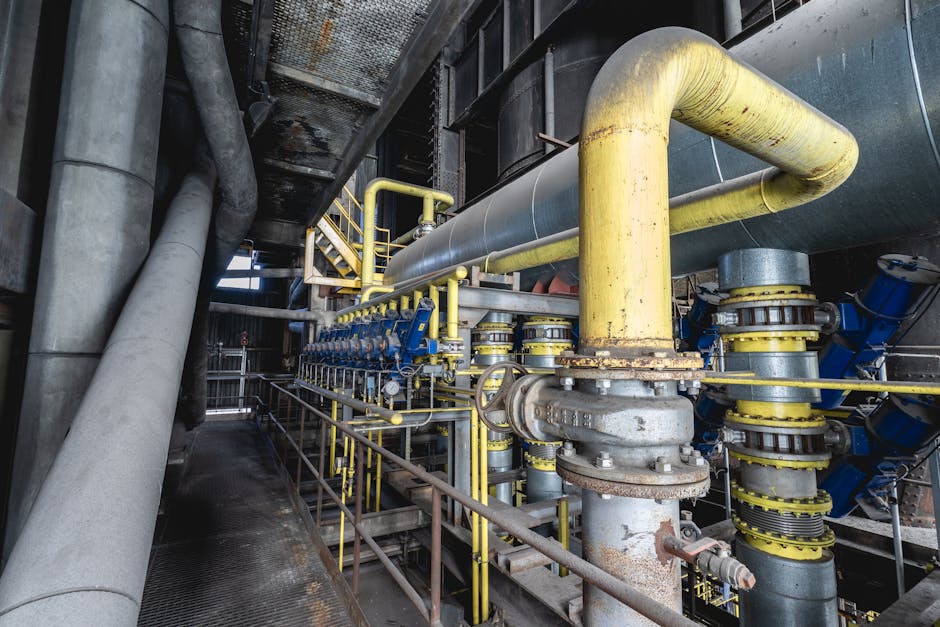

When it comes to ensuring the safety and efficiency of your trailer on the road, one of the most crucial aspects to consider is tire pressure. Properly inflated tires not only improve fuel efficiency but also significantly reduce the risk of accidents caused by blowouts and other tire-related issues. This is where Tire Pressure Monitoring Systems (TPMS) come into play, offering a smart solution for real-time tire pressure management.
A TPMS for trailer tire pressure is a state-of-the-art device designed to monitor and report the air pressure inside your trailer's tires. These systems are equipped with sensors that send real-time data to a display unit within the vehicle, alerting drivers to any discrepancies from the optimal pressure levels. This proactive approach allows for immediate action, preventing potential tire failures and enhancing overall safety.
The technology behind TPMS has evolved over the years, making it more reliable and user-friendly. Modern systems not only monitor pressure but also temperature, providing a comprehensive overview of the tire's health. This dual monitoring feature is particularly beneficial in preventing overheating, which can lead to tire degradation and failure.
With the increasing emphasis on safety and efficiency, investing in a high-quality TPMS for trailer tire pressure is no longer optional but a necessity for responsible trailer owners. If you're looking for the best TPMS options to ensure your trailer's safety, you're in the right place. Tow with peace of mind, knowing that TrailerWatchdog is standing guard. Visit trailerwatchdog.com to learn more.
How TPMS for Trailers Work

Understanding how a TPMS for trailer tire pressure works can help you appreciate its importance and functionality. Essentially, a TPMS consists of several key components: sensors, a control unit, and a display unit. Each of these parts plays a crucial role in ensuring seamless monitoring of tire pressure and temperature.
Sensors are installed inside or on the valve stems of each tire. These sensors continuously measure the air pressure and sometimes the temperature within the tire. They then transmit this data wirelessly to the control unit. These sensors are powered by batteries designed to last several years, ensuring long-term reliability.
The control unit, often referred to as the receiver, collects data from the sensors. It processes this information and determines if any tire is under-inflated, over-inflated, or overheating. The control unit is the brain of the system, making real-time decisions based on the data received.
Finally, the display unit is typically located within the driver’s cabin. This unit provides visual alerts and sometimes audible warnings if any tire’s pressure or temperature deviates from the recommended range. Some advanced systems even allow integration with smartphone apps, offering more flexibility and convenience for monitoring tire health.
By continuously providing real-time updates, a TPMS for trailer tire pressure helps drivers maintain optimal tire conditions, thereby enhancing safety and performance on the road. The integration of these components ensures that you’re always informed about the status of your trailer's tires, allowing for timely interventions and peace of mind.
Benefits of Using TPMS for Trailer Tires

Utilizing a TPMS for trailer tire pressure offers a multitude of benefits that can significantly enhance your towing experience. First and foremost, a TPMS ensures improved safety by providing real-time alerts about tire pressure and temperature anomalies. This early warning system can prevent potential blowouts, reducing the risk of accidents caused by tire failure.
Another significant advantage is the extended lifespan of your tires. By maintaining the correct tire pressure, a TPMS helps prevent uneven tire wear and tear. Properly inflated tires not only last longer but also perform better, offering you more mileage and saving you money in the long run.
Fuel efficiency is another crucial benefit. Under-inflated tires create higher rolling resistance, which in turn forces the vehicle to consume more fuel. By ensuring your trailer tires are always at the optimal pressure, a TPMS can help you achieve better fuel economy, making your trips more cost-effective.
Additionally, a TPMS provides peace of mind for drivers. Knowing that your trailer’s tire conditions are being constantly monitored allows you to focus on the road without the nagging worry of potential tire issues. This is particularly beneficial for long-haul drivers and those frequently towing heavy loads.
Lastly, some advanced TPMS systems offer integration with other digital tools, such as smartphone apps. This feature allows for even greater convenience and control, enabling you to monitor tire conditions from your mobile device. This integration can be particularly useful for fleet managers who need to keep track of multiple trailers simultaneously.
In summary, the benefits of using a TPMS for trailer tires are multifaceted, ranging from enhanced safety and longevity of tires to improved fuel efficiency and peace of mind. These advantages make it a worthwhile investment for anyone serious about safe and efficient towing.
Key Features to Look for in TPMS

When selecting a TPMS for trailer tire pressure, it's crucial to consider several key features to ensure you get the most out of your investment. One of the primary features to look for is real-time monitoring. A good TPMS should provide immediate alerts for any abnormalities in tire pressure or temperature, allowing you to address issues before they escalate into serious problems.
Another essential feature is ease of installation. Some TPMS units are designed for straightforward DIY installation, while others may require professional assistance. Opt for a system that suits your level of technical expertise and comfort, ensuring that setup doesn’t become a headache.
Also, consider the range and compatibility of the TPMS. Ensure that the system you choose can cover the distance between the main unit and the tires, especially if you have a long trailer. Additionally, the TPMS should be compatible with the types of tires on your trailer, whether they are standard, oversized, or specialty tires.
Battery life is another crucial factor. A TPMS with a long battery life will save you the hassle of frequent replacements and ensure continuous monitoring. Some systems come with rechargeable batteries, while others use replaceable ones, so choose according to your preference.
Protect your trailer
Consider the display options as well. Some TPMS units come with their own dedicated display screens, while others can integrate with your vehicle’s dashboard or even your smartphone. Choose a display option that is convenient for you and easy to read while driving.
Finally, look for additional features such as data logging, customizable alerts, and integration with other smart trailer technologies. These added functionalities can provide a more comprehensive monitoring solution and enhance your overall towing experience.
By paying attention to these key features, you can select a TPMS that meets your specific needs, ensuring safer and more efficient travels.
Top-Rated TPMS for Trailer Tire Pressure
Choosing the right TPMS for trailer tire pressure can be overwhelming given the multitude of options available. To simplify your decision-making process, we've compiled a list of top-rated TPMS systems that stand out for their reliability, features, and user satisfaction.
TireMinder A1AS is a highly praised system known for its advanced monitoring capabilities and user-friendly interface. It offers real-time alerts for both tire pressure and temperature and is compatible with various trailer types. With a robust signal range, it ensures accurate readings even for long trailers.
The EEZTire-TPMS is another top contender, offering comprehensive monitoring for up to 26 tires. This system is particularly favored for its ease of installation and intuitive display, which can be mounted on the dashboard for easy visibility. It also features a long battery life, ensuring continuous monitoring on long trips.
TST 507 RV TPMS is celebrated for its durability and precision. It provides real-time data and customizable alerts, making it a reliable choice for those who frequently tow heavy loads. The system includes both visual and audible alarms, so you won't miss any critical alerts while on the road.
Another excellent choice is the Bellacorp Tire Pressure Monitoring System. This system offers a unique blend of affordability and functionality. It supports up to 34 tires and features a large, easy-to-read display. Users appreciate its straightforward setup and reliable performance.
Lastly, the Garmin RV 1090 TPMS integrates seamlessly with Garmin GPS units, providing an all-in-one navigation and tire monitoring solution. It offers real-time alerts, historical data tracking, and a user-friendly interface, making it a favorite among tech-savvy users.
Each of these top-rated TPMS systems offers a unique set of features to cater to different needs and preferences. By considering their strengths and functionalities, you can find a TPMS that ensures optimal safety and performance for your trailer.
Installation and Maintenance Tips for TPMS

Proper installation and maintenance of your TPMS for trailer tire pressure are crucial to ensure its longevity and accuracy. Here are some essential tips to help you get the most out of your system.
Initial Installation: Begin by reading the manufacturer’s instructions carefully. Each TPMS model may have unique installation requirements. Generally, you will need to attach sensors to the valve stems of your trailer's tires. Make sure to tighten them securely to prevent leaks. Many systems also include a display unit that should be mounted within your vehicle for easy viewing.
Calibration: After installation, it's important to calibrate the system according to the recommended tire pressure levels for your trailer. This step ensures that the TPMS will provide accurate readings and alerts. Refer to your trailer’s manual or the tire manufacturer's guidelines for the correct pressure settings.
Regular Maintenance: Regularly check the sensors for signs of wear or damage, as these can affect performance. Clean the sensors periodically to remove dirt and debris. It's also advisable to check the battery levels of the sensors and the display unit. Most TPMS systems will alert you when the battery is low, but it's good practice to inspect them manually as well.
Software Updates: Some advanced TPMS models come with firmware that can be updated. Keeping the software up-to-date ensures that you benefit from the latest features and improvements. Check the manufacturer’s website periodically for any available updates.
Professional Assistance: If you encounter any issues during installation or maintenance, don’t hesitate to seek professional help. Incorrect installation can lead to inaccurate readings or even damage to the TPMS.
Storage: If you don’t use your trailer frequently, make sure to store the TPMS components in a safe, dry place. Remove the sensors from the tires to extend their lifespan and prevent battery drain.
By following these installation and maintenance tips, you can ensure that your TPMS functions correctly and provides reliable tire pressure monitoring for your trailer. Tow with peace of mind, knowing that TrailerWatchdog is standing guard. Visit trailerwatchdog.com to learn more about our innovative monitoring solutions.




